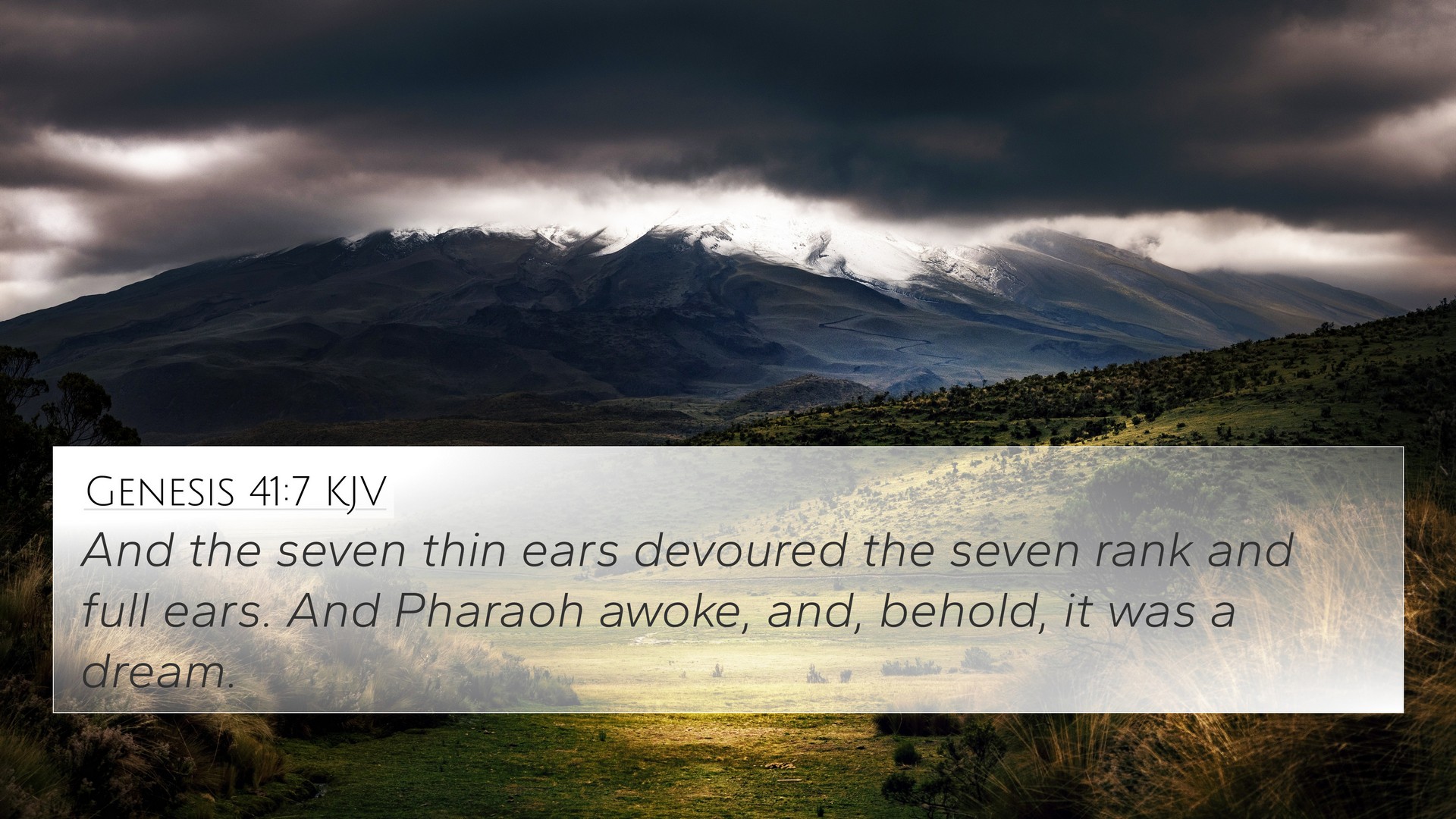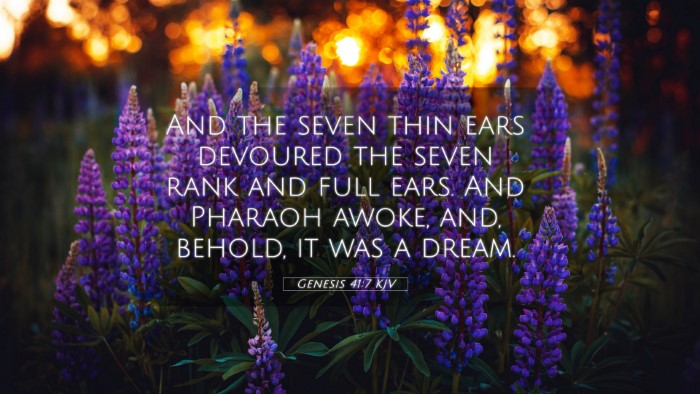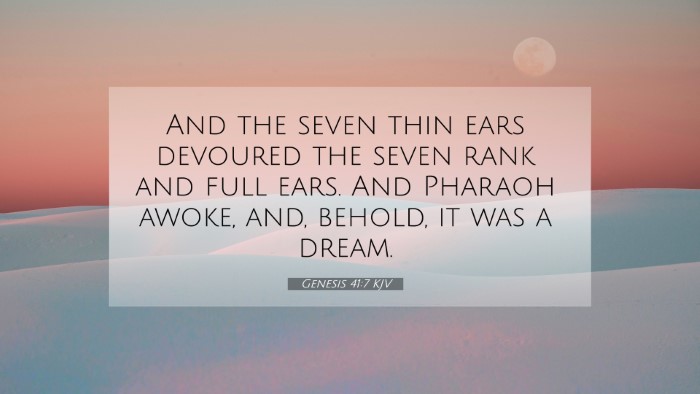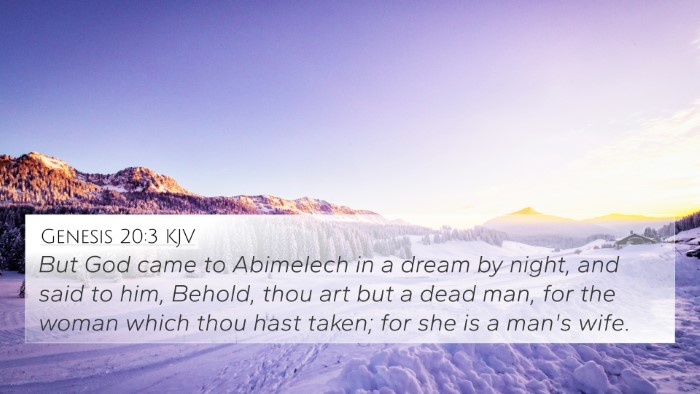Understanding Genesis 41:7
Genesis 41:7 states: "And the thin ears devoured the seven fat ears. So Pharaoh awoke, and behold, it was a dream."
This verse is significant in the context of Pharaoh's dream and the subsequent interpretation by Joseph. It represents a divine revelation regarding the future of Egypt and a warning about impending famine.
Context and Meaning
In Genesis 41, Pharaoh has a disturbing dream that troubles him greatly. He dreams of seven healthy, plump cows being consumed by seven gaunt, thin cows, followed by the vision of seven fat ears of grain being devoured by seven thin ears. This imagery is crucial as it serves to highlight the contrast between abundance and scarcity.
Interpretation Insights
- Matthew Henry emphasizes that the thin ears symbolize the famine that will follow the years of plenty. The consumption of the fat ears signifies that the famine will be severe enough to erase the memory of the years of abundance.
- Albert Barnes notes that the emphasis on the thin devouring the fat illustrates the destructive nature of calamity. It suggests that adversities can consume even the most prosperous times in history.
- Adam Clarke offers insights into the prophetic nature of the dream, explaining that God uses dreams as a means of communication, particularly in guiding nations. The dual symbolism of cows and ears speaks to both agricultural and economic impacts on society.
Bible Verse Cross-References
Genesis 41:7 connects with several other scripture passages that articulate themes of divine revelation, prophetic warnings, and the cycles of abundance and scarcity:
- Genesis 41:30-31 - Clarifies the meaning of the dream by stating that seven years of famine will follow seven years of plenty.
- Genesis 45:6 - Joseph's explanation to his brothers about the severity of the famine and how it impacted the region.
- Proverbs 27:23-27 - Advises on the importance of foreseeing future needs, echoing the call for preparation in times of plenty.
- Matthew 2:19-20 - God speaks through dreams, as evidenced by the angel's message to Joseph about returning to Israel, similar to Pharaoh's experience.
- John 16:13 - Jesus speaks to the role of the Spirit in guiding believers into all truth, akin to how God revealed the events of Pharaoh's dream.
- Acts 2:17 - Quotes Joel, indicating that God will pour out His Spirit and that people will prophesy, just as Joseph interpreted Pharaoh's dreams.
- Revelation 7:16-17 - Discusses the theme of abundance and sustenance, promising that God will provide for His people.
- 1 Corinthians 10:11 - Highlights how events in the past serve as cautionary examples for present and future believers.
- Hebrews 13:5-6 - Speaks about God's constant provision and care, linking to the themes of need and sustenance found in Genesis 41.
- Psalm 37:25 - Expresses trust in God's provision through all seasons, related to the cycles depicted in Pharaoh's dreams.
Thematic Connections
Thematic analysis of Genesis 41:7 reveals important principles:
- **Divine Providence**: God's sovereignty over the affairs of nations and individuals is evident through Pharaoh's dreams.
- **Preparation**: The need for foresight and prudent planning in the face of changing circumstances.
- **Transformation of State**: The transition from abundance to famine symbolizes broader human experiences of wealth and loss.
Conclusion
Genesis 41:7 serves as a poignant reminder of the necessity of vigilance and preparation in both personal and communal contexts. By understanding its connections and cross-references, believers can enrich their comprehension of God's overarching narrative and guidance throughout scripture.




